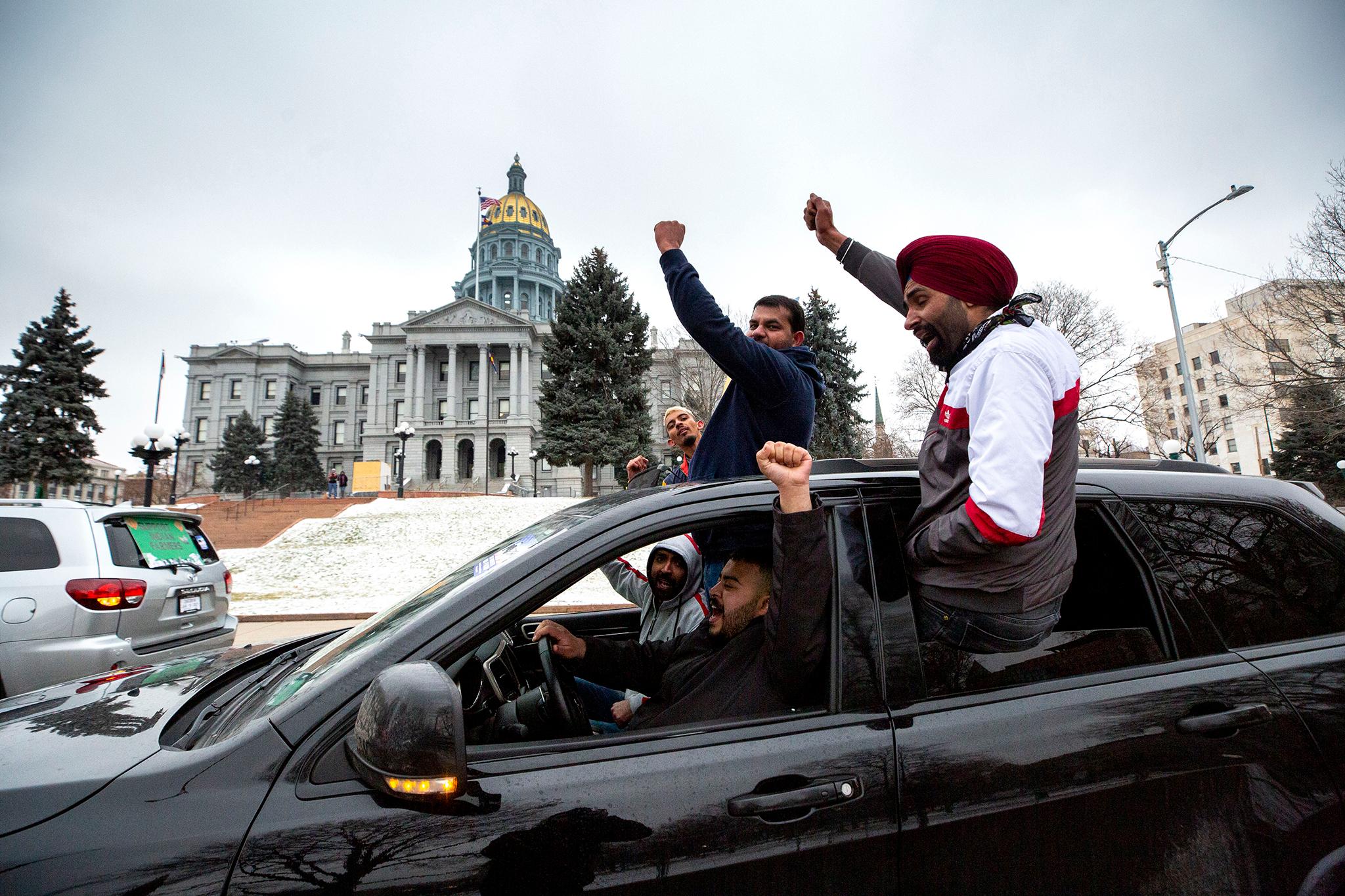A few weeks ago, India saw what was perhaps the largest protest in human history. Tens of thousands marched on the capital, New Delhi, as 250 million people around the nation participated in a 24-hour general strike in solidarity. The moment's energy spread across the globe. Over the weekend, in cities all across the U.S., Indian-American protesters and their allies took to the streets. They demonstrated in support of disenfranchised farmers, and to educate their neighbors about a massive struggle playing out on the other side of the globe.
On Saturday, scores of cars adorned with protest signs and flags assembled in the parking lot at South High School. In a snaking line, the caravan drove west to Lincoln Street. Then, filling all three lanes of traffic, they slowly processed north toward the Capitol. Horn honks filled the air around them.

For months, the farmers of India have been protesting a suite of laws that stripped regulations from the country's agricultural sector.
With the backing of Prime Minister Narendra Modi, India's legislature passed three laws that removes the government as a mandated middleman between farmers and distributors, possibly abolishing guaranteed minimum prices for goods.
Opponents paint the changes as an invitation for corporations to take advantage of the mostly small, family-based farming operations in the country. For context, 70 percent of people living in India, the world's second-most populous nation, make ends meet from agriculture. That's about 947 million people, or three times the U.S. population, and 80 percent of them make it work on 5 acres or less.
Indian law enforcement's reaction stoked the protests and elicited international reaction. Farmers marching on New Delhi were met with tear gas and water cannons.
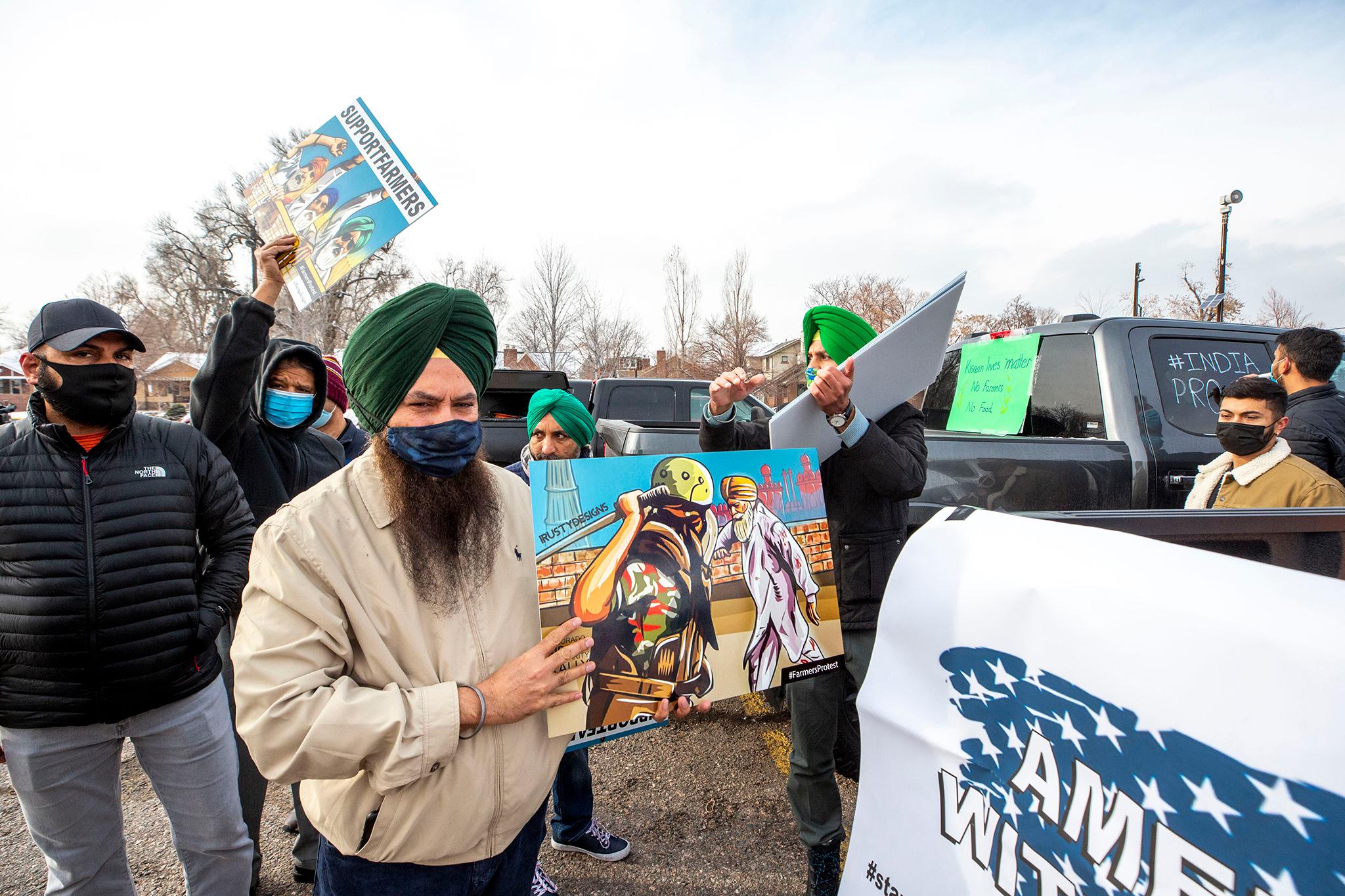
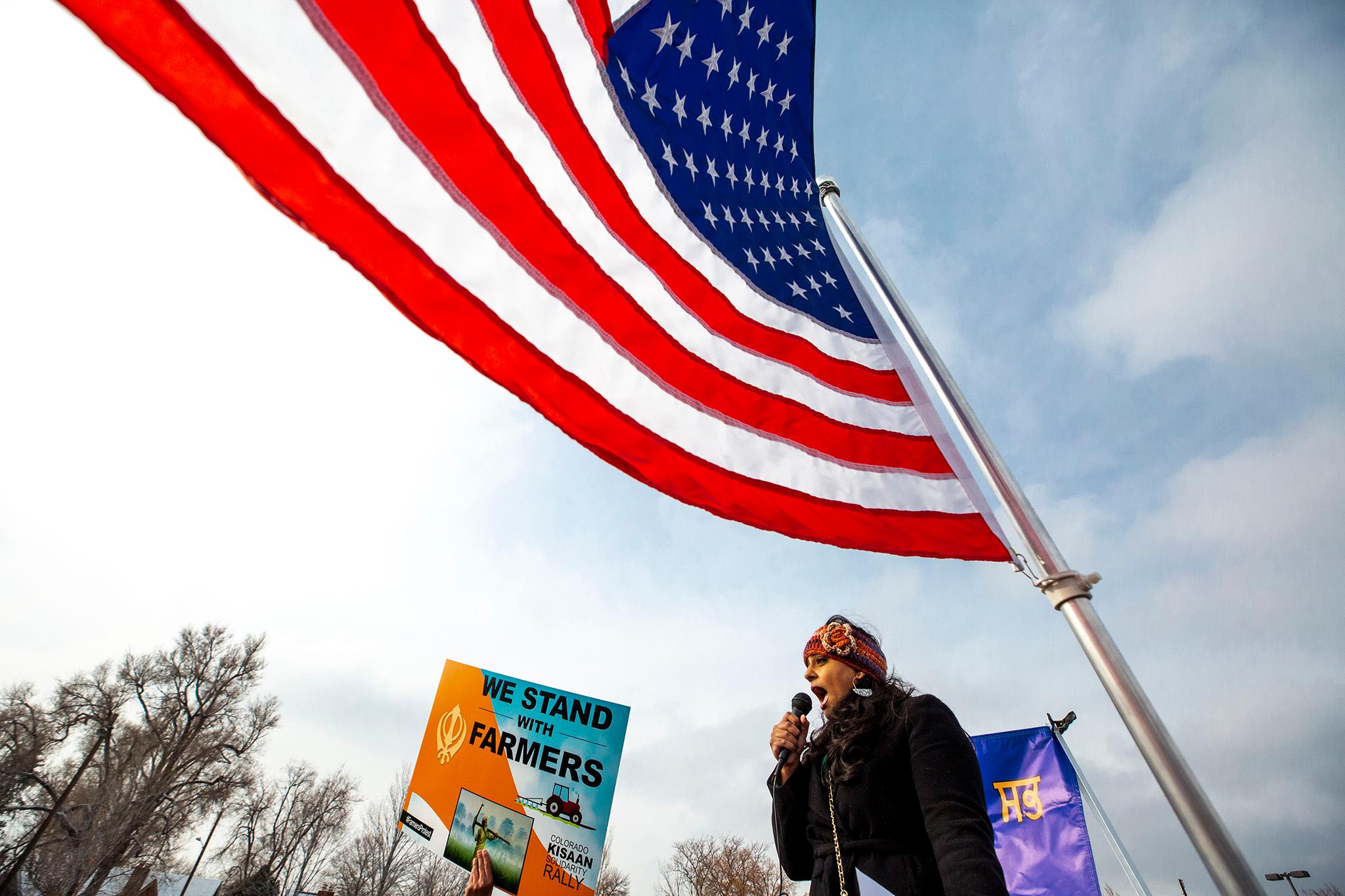
Amisha Singh, a doctor who addressed the local crowd of protesters before they left South High, laid out the stakes.
"For these corporations, this is an extra dollar. But for these farmers, it is the difference between eating and going hungry. The difference between sending their sons and daughters to school, or remaining uneducated for yet another generation. It is the difference between hope and death."
They may be far away, but Indian Americans in Denver are hoping their demonstration might make a difference on the international stage.
Harshwinder Kaur is a third-year law student who attended the rally. She was born and raised in Colorado, but she has cousins who live off farming operations and are actively protesting the new laws. She's been watching events unfold on social media, in part because she's skeptical of reports from Indian news outlets. She said she was glad to see Western outlets picking up the story.
"My family has been protesting since the end of September," she said. "They just want their voices heard."
Anmol Singh, who's been helping the metro's Sikh community distribute goods to essential workers during the pandemic, said advocates are planning to meet with U.S. officials in the next few weeks, asking that they weigh in on the situation. This is tricky, since the federal government will shift to a new administration in a few weeks. They'll just have to keep scheduling meetings, he said.
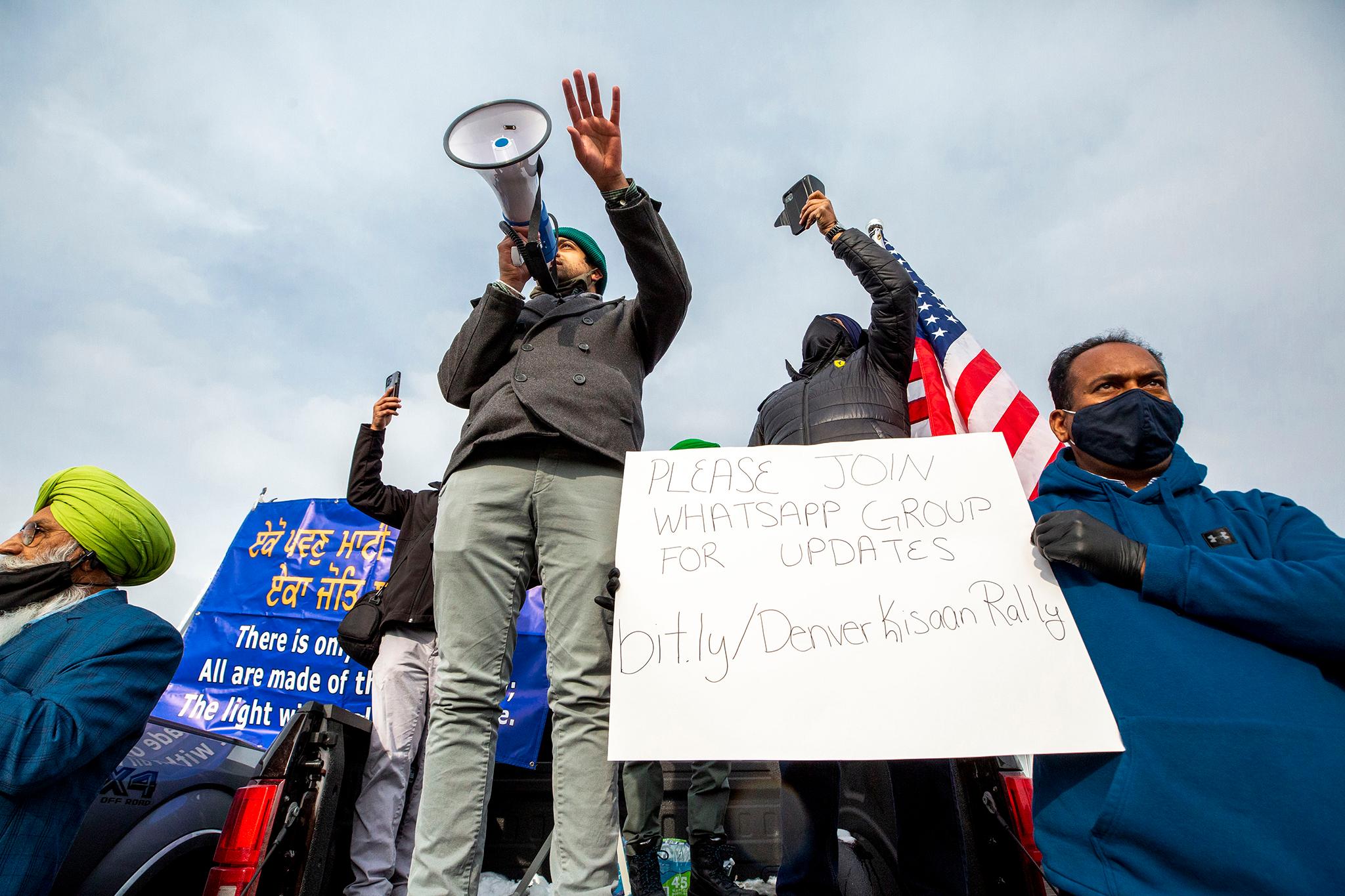
Perdeep "Deep" Singh Badhesha helped organize the rally; he's also Kaur's fiancé.
"It's our duty as Americans to speak up about our ancestral homes," he said. "A lot of us were marching in different rallies this summer for civil rights, so were glad to be doing this for our own people now, too."
The "Indian diaspora" is scattered across the country and has a sizable presence in the metro area, he said. The rally was organized on short notice. But people were fired up, and they turned out in droves.
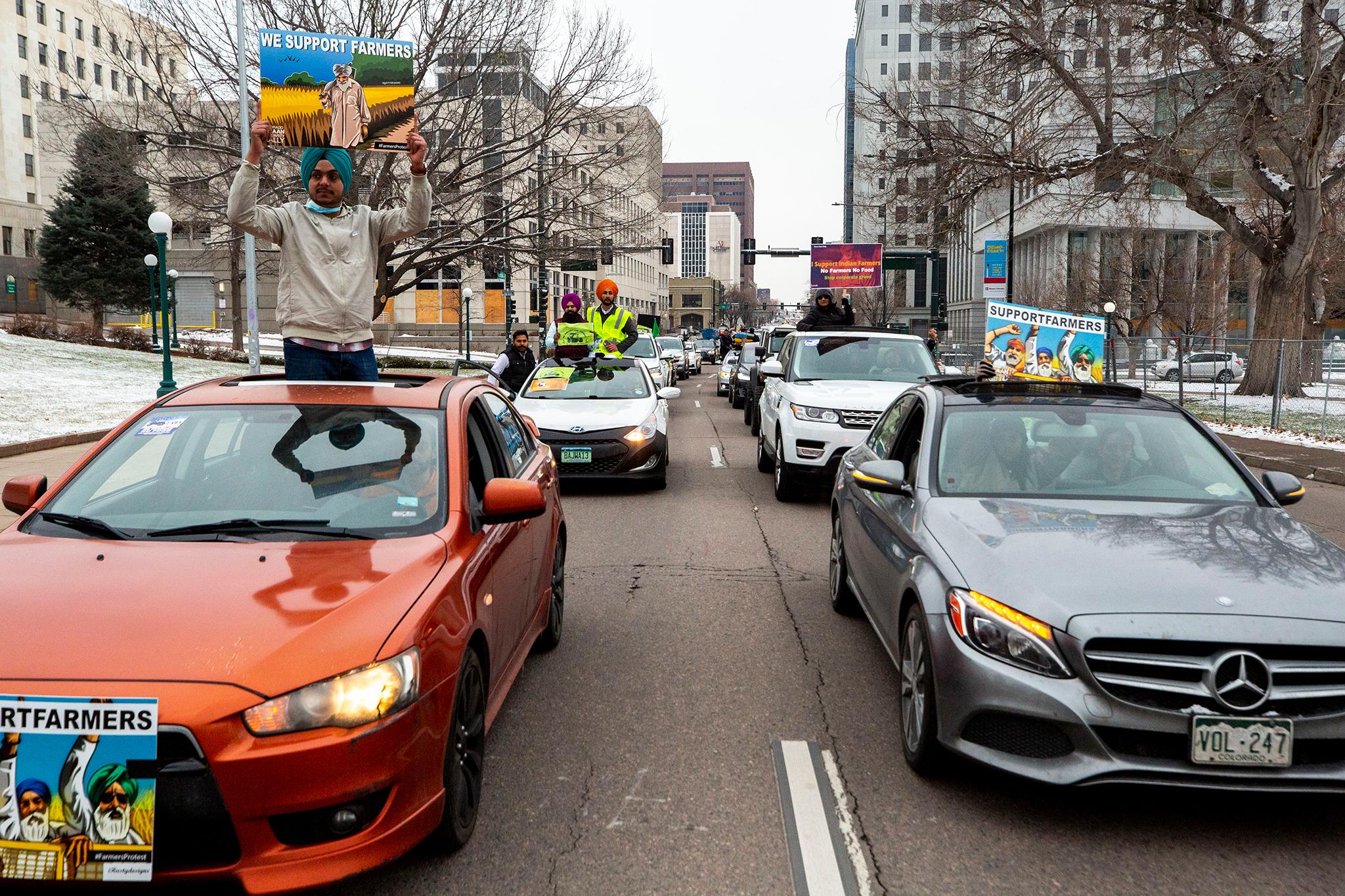
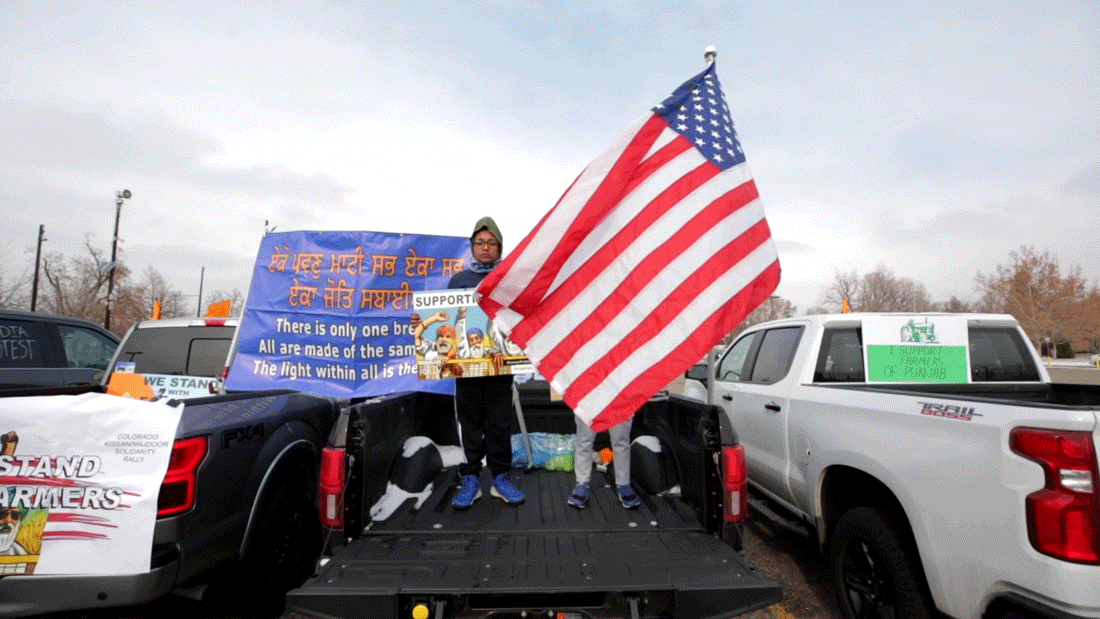
As she addressed the crowd, Amisha Singh directed her comments to Denverites at large. She tied the farmers' movement in India to the plight of Latin American farmers, who suffered after multi-national corporations swallowed land in pursuit of a global banana trade.
"This is not only their battle it is ours," she said. "The rights of every human are also at stake. Our rights are also at stake."

